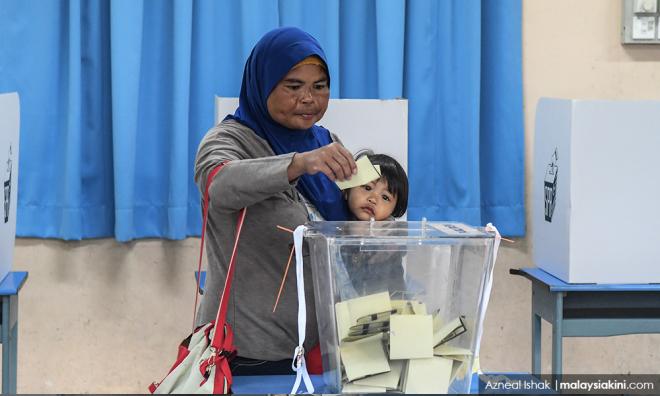
The proposed "proportional representation" (PR) election system might result in better lawmaking, said the head of think tank and pollster Ilham Centre.
Its chief executive officer Mohd Azlan Zainal, who expressed support for the proposal in principle, said the system does not require lawmakers to represent a defined constituency.
This meant that once elected, a lawmaker can focus solely on lawmaking, unlike now, he said.
“I believe the rationale to use the PR system for parliamentary seats is to restore the function of being an MP, which is focusing on policy-making and lawmaking in Parliament."
"It has been a long time that our MPs are focusing on their constituency, and are not performing in Parliament," Mohd Azlan said when contacted by Malaysiakini.
Mohd Azlan was commenting on the preliminary proposal by the Election Reform Committee to replace the current "first-past-the-post" (FTPT) system with a "proportional representation" system, which will be submitted to the government soon.

Conversely, Bersih chairperson Thomas Fann (above) was not in favour of having lawmakers disengage themselves from constituency affairs.
While not opposing the "proportional representation" proposal, he suggested that if this system is adopted, parties should only nominate candidates who have local support.
"Since every vote would count, parties cannot afford to be seen as 'absent' or disinterested in local affairs, even in places they are not well supported.
"A disciplined and professional party would want to have constant outreach to voters everywhere," Fann said.
He said the current "first-past-the-post" (FPTP) system provided incentives for candidates to maintain a local presence.
Bersih, he said, would prefer a "mixed-member proportional" system, similar to that in Germany.
Such a system combines both "first-past-the-post", which Malaysians are familiar with, and a "party list" system designed to make Parliament's composition reflective of the popular vote.
"To retain the element of representation at the local constituency level, a mixed proportional system could be an option, where FPTP is retained for half or two-thirds of seats, and the rest based on proportional representation.
"With such an approach we can have the best of both systems, local representation and fairer representation of voters' choice and opportunities for smaller parties, women and minorities," Fann added. - Mkini
No comments:
Post a Comment
Note: Only a member of this blog may post a comment.